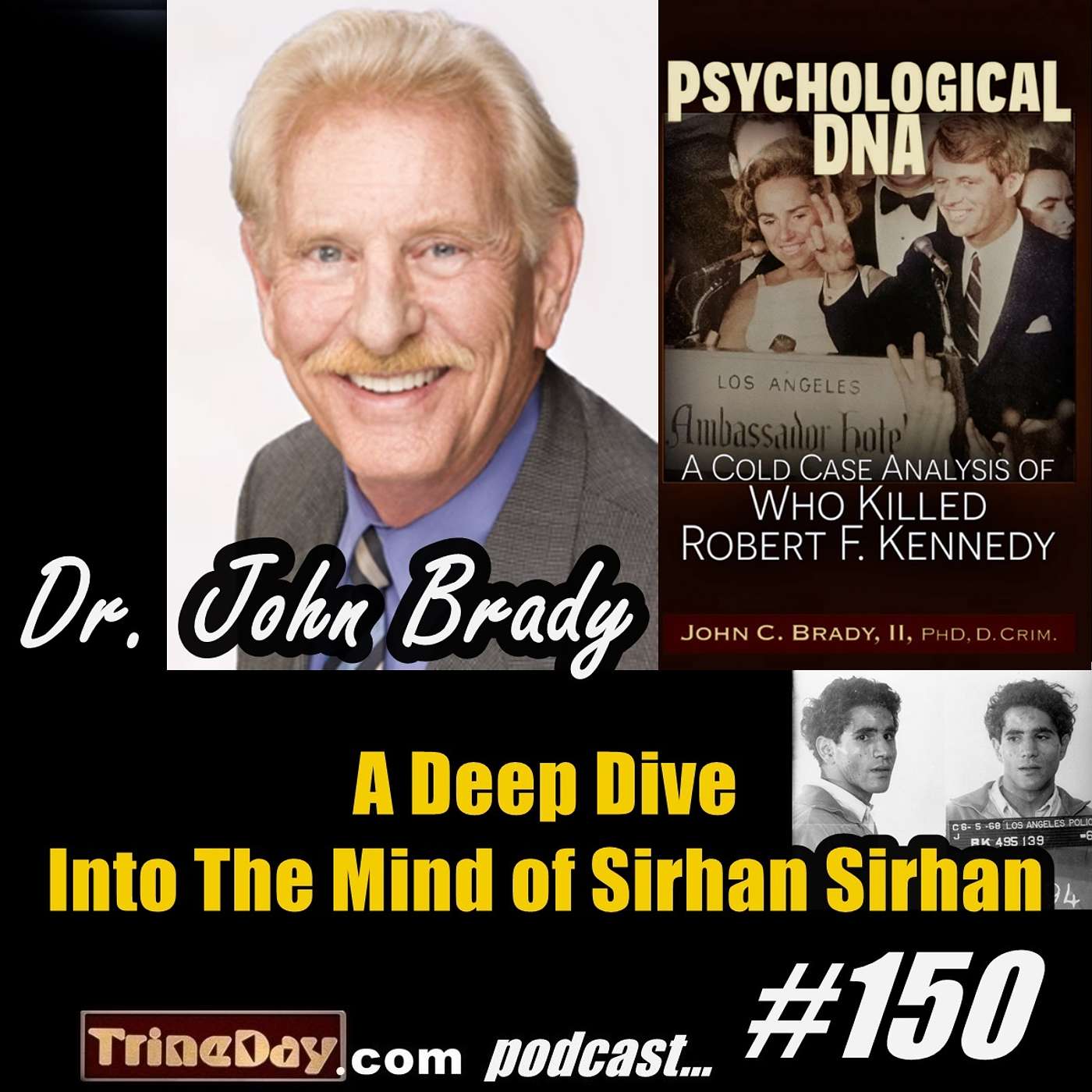
The Journey Podcast 150. Dr. John Brady: A Deep Dive into the Mind of Sirhan Sirhan
Listen Below:
Original Podcast Link: https://trinedaythejourneypodcast.buzzsprout.com/1284782/14891889-150-dr-john-brady-a-deep-dive-into-the-mind-of-sirhan-sirhan
From the podcast:
Publisher Kris Millegan speaks with Dr. John Brady, a licensed forensic psychologist, true crime writer, Doctor of Criminology, and celebrity analyst. His upcoming book is PSYCHOLOGICAL DNA: A Cold Case Analysis of Who Killed Robert F. Kennedy, being released June 5, 2024.
Using modern criminological methods and new psychological assessment tools not available five decades ago, Dr. Brady has reassessed Sirhan’ s mental state and arrived at five mental conditions that, in his opinion, if presented at trial could have changed the jury’ s verdict and spared Sirhan five and a half decades in prison.
John wrote an earlier book, KLEPT0 BISMO: Big Pharma, Shoplifting and Psychiatric Deception, about the people, though well off, even wealthy, who had been arrested for shoplifting. They were all on psychiatric drugs for things like anxiety and depression. The point is made that the US is 4% of the world’s population, but we consume 60% of all medications, and half of those are psychoactive drugs used to treat anxiety and other conditions.
Many of the thieves referred to him for treatment had been in state institutions, where, they said, psychoactive drugs were more available than on the street. In US correctional institutions, the states spend $9 billion dollars on psychiatric drugs to manage and control inmate populations. These drugs may help some people in the short-term. But in the long run they may precipitate unwanted behaviors such as crime; for instance, nine out of ten mass shooters had been prescribed some form of psychiatric medication for things like anxiety or depression.
When a grad student, John’s major professor was Bernard Diamond, chief psychiatrist for Sirhan Sirhan’s defense team, who would conduct seminars on the defense team’s strategies, introducing John to the case very early. His interest was percolated recently due to articles concerning whether Sirhan actually killed Robert F. Kennedy. John’s focus is on the psychological aspects of Sirhan’s personality.
During Sirhan’s trial, there was no unanimity of diagnosis among the ten doctors who examined him. They tried to label him as paranoid schizophrenic, but later it was established that he had none of the symptoms associated with that.
Thinking that something was missing, John researched what was said at the trial, what the diagnoses were at the time, and why the case was mishandled in terms of coming up with a true diagnosis. John found that Sirhan had five conditions that were not diagnosed at the trial.
Sirhan, John diagnoses, had two distinct personalities, one pretty good and one pretty bad, and the bad one committed the murder unbeknownst to the good personality; Sirhan formed the bad personality early in life to preserve himself from the trauma he experienced when he was in Palestine, when there was murder and mayhem all around him. This personality became the evil Sirhan as opposed to the benevolent or ordinary Sirhan.
Kris and John also discuss the girl in the polka dot dress, the overwhelming evidence of multiple shooters in the pantry, the seeming consensus among researchers that security guard Thane Eugene Cesar next to and behind RFK shot him, the evidence that Sirhan was a mind-controlled patsy with no intent to harm anyone, and Lee Harvey Oswald, Charles Whitman (the Texas Tower shooter), and Mark David Chapman (John Lennon’s alleged shooter).
